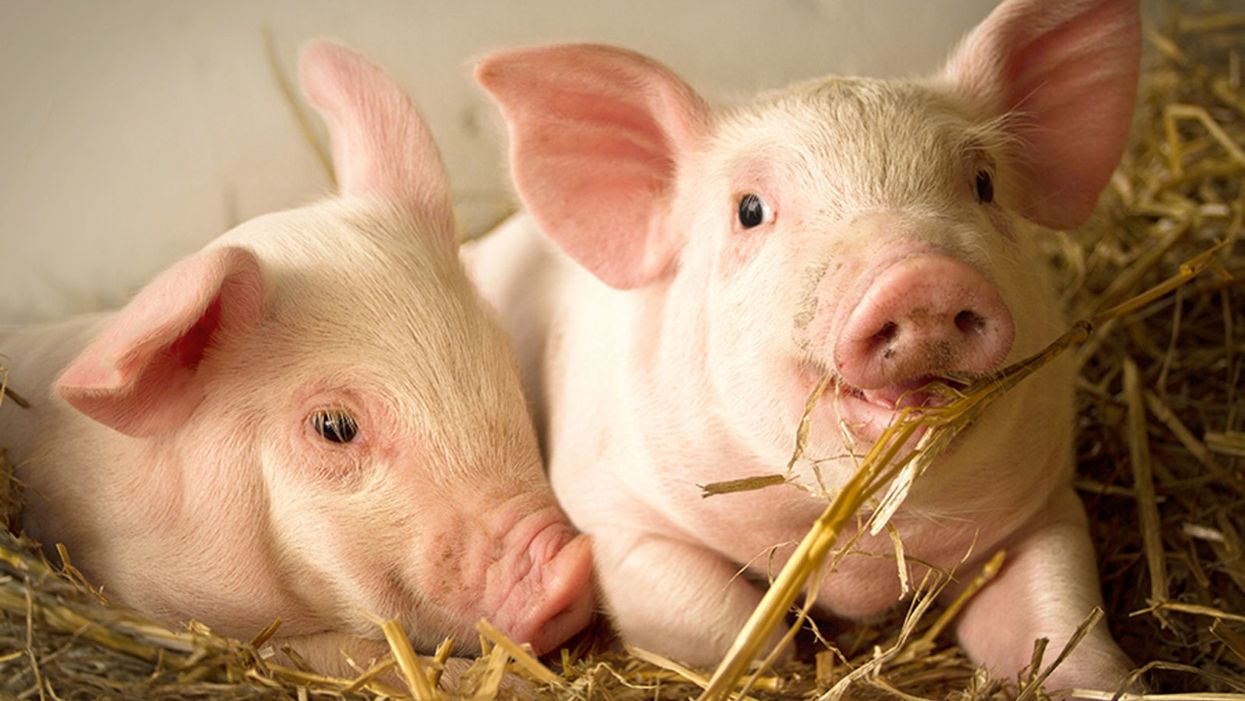Dec. 17th Event: The Latest on Omicron, Boosters, and Immunity
Kira Peikoff was the editor-in-chief of Leaps.org from 2017 to 2021. As a journalist, her work has appeared in The New York Times, Newsweek, Nautilus, Popular Mechanics, The New York Academy of Sciences, and other outlets. She is also the author of four suspense novels that explore controversial issues arising from scientific innovation: Living Proof, No Time to Die, Die Again Tomorrow, and Mother Knows Best. Peikoff holds a B.A. in Journalism from New York University and an M.S. in Bioethics from Columbia University. She lives in New Jersey with her husband and two young sons. Follow her on Twitter @KiraPeikoff.
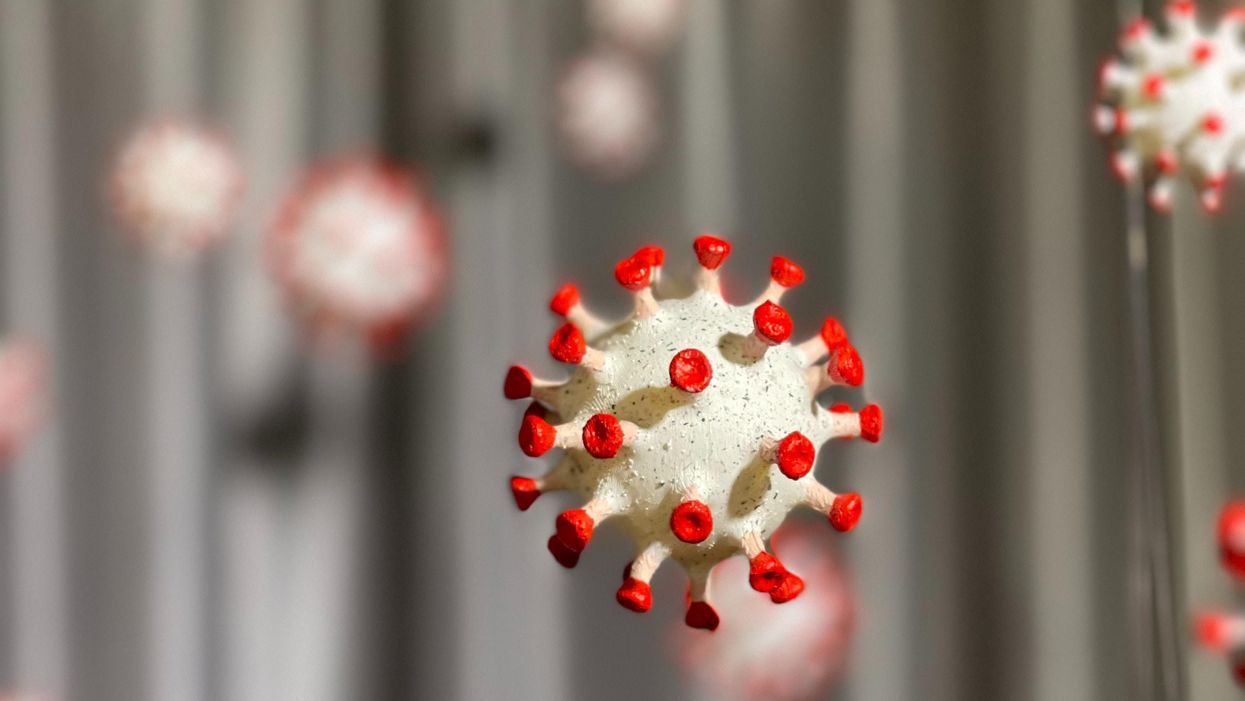
The Omicron variant poses new uncertainty for the vaccines, which four leading experts will address during our virtual event on December 17th, 2021.
This virtual event will convene leading scientific and medical experts to discuss the most pressing questions around the new Omicron variant, including what we know so far about its ability to evade COVID-19 vaccines, the role of boosters in eliciting heightened immunity, and the science behind variants and vaccines. A public Q&A will follow the expert discussion.
EVENT INFORMATION:
Date: Friday Dec 17, 2021
2:00pm - 3:30pm EST

Dr. Céline Gounder, MD, ScM, is the CEO/President/Founder of Just Human Productions, a non-profit multimedia organization. She is also the host and producer of American Diagnosis, a podcast on health and social justice, and Epidemic, a podcast about infectious disease epidemics and pandemics. She served on the Biden-Harris Transition COVID-19 Advisory Board.
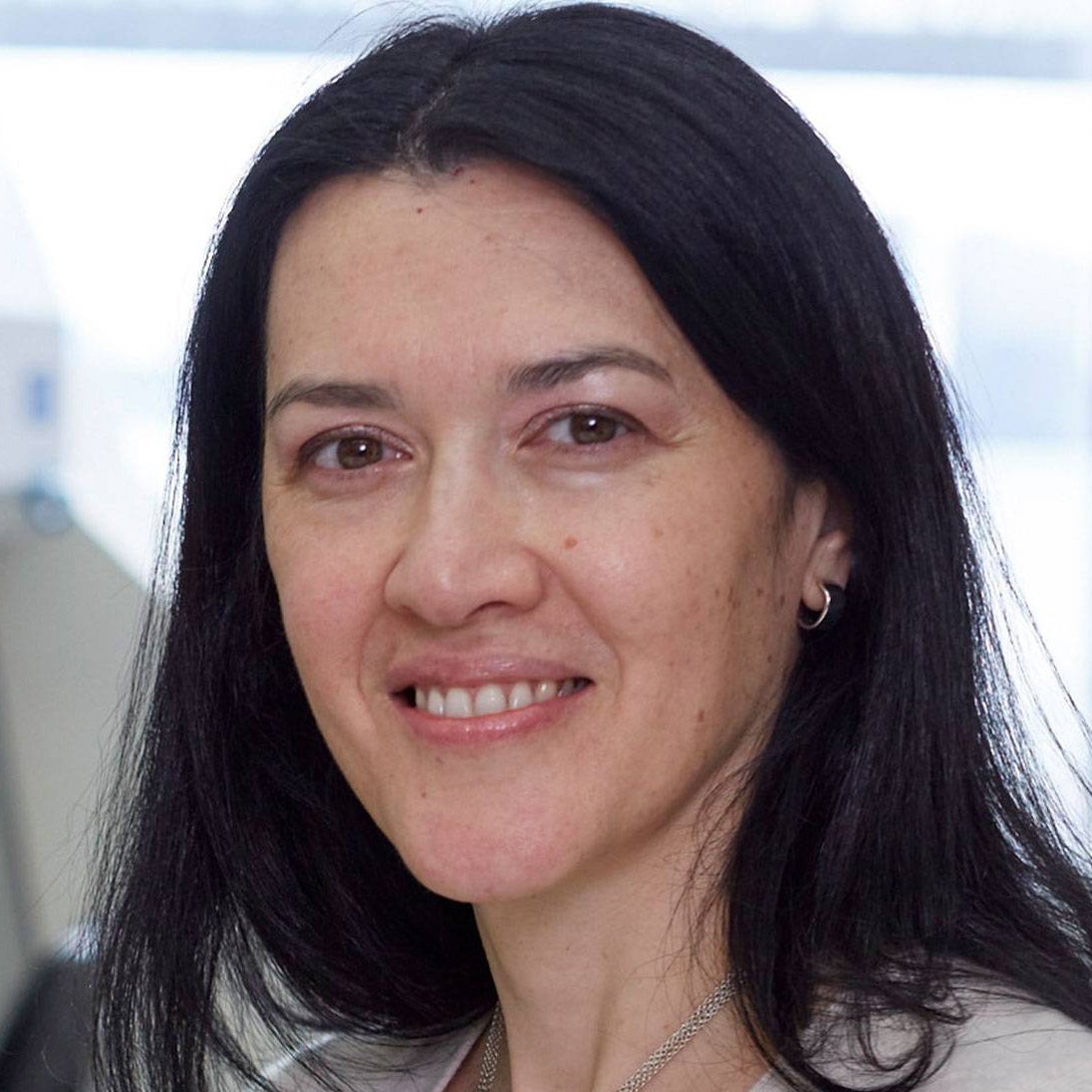 Dr. Theodora Hatziioannou, Ph.D., is a Research Associate Professor in the Laboratory of Retrovirology at The Rockefeller University. Her research includes identifying plasma samples from recovered COVID-19 patients that contain antibodies capable of neutralizing the SARS-CoV-2 coronavirus.
Dr. Theodora Hatziioannou, Ph.D., is a Research Associate Professor in the Laboratory of Retrovirology at The Rockefeller University. Her research includes identifying plasma samples from recovered COVID-19 patients that contain antibodies capable of neutralizing the SARS-CoV-2 coronavirus.
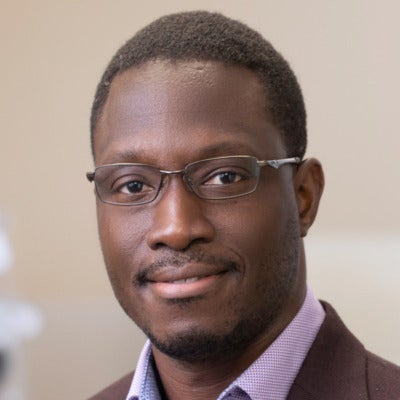
Dr. Onyema Ogbuagu, MBBCh, is an Associate Professor at Yale School of Medicine and an infectious disease specialist who treats COVID-19 patients and leads Yale’s clinical studies around COVID-19. He ran Yale’s trial of the Pfizer/BioNTech vaccine.
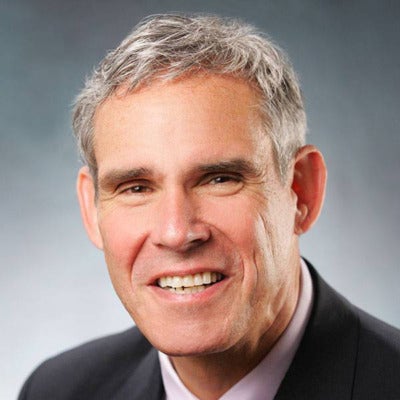
Dr. Eric Topol, M.D., is a cardiologist, scientist, professor of molecular medicine, and the director and founder of Scripps Research Translational Institute. He has led clinical trials in over 40 countries with over 200,000 patients and pioneered the development of many routinely used medications.
This event is the fourth of a four-part series co-hosted by Leaps.org, the Aspen Institute Science & Society Program, and the Sabin–Aspen Vaccine Science & Policy Group, with generous support from the Gordon and Betty Moore Foundation and the Howard Hughes Medical Institute.
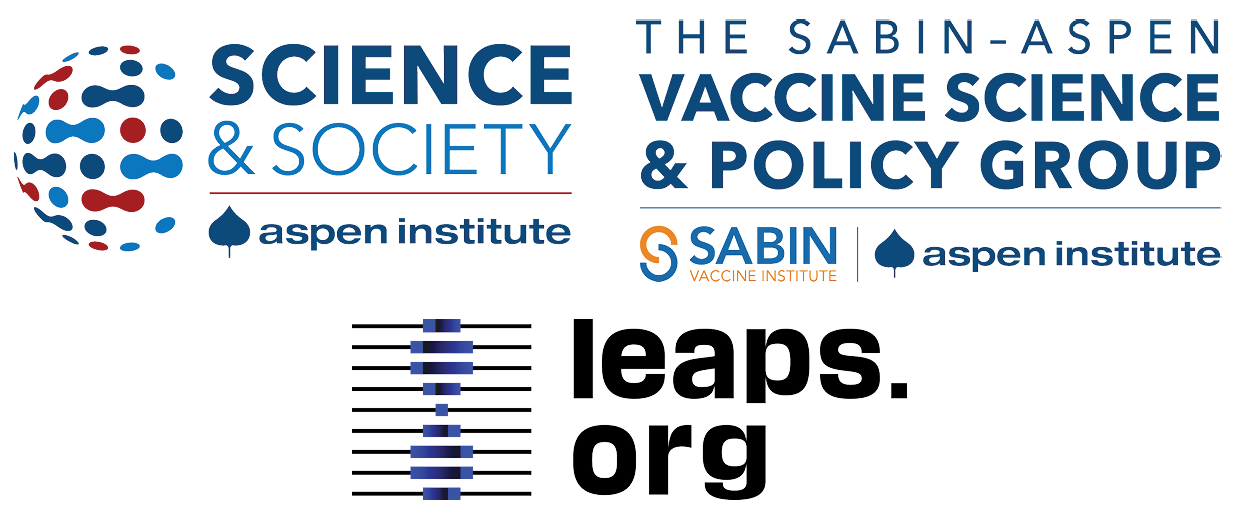
Kira Peikoff was the editor-in-chief of Leaps.org from 2017 to 2021. As a journalist, her work has appeared in The New York Times, Newsweek, Nautilus, Popular Mechanics, The New York Academy of Sciences, and other outlets. She is also the author of four suspense novels that explore controversial issues arising from scientific innovation: Living Proof, No Time to Die, Die Again Tomorrow, and Mother Knows Best. Peikoff holds a B.A. in Journalism from New York University and an M.S. in Bioethics from Columbia University. She lives in New Jersey with her husband and two young sons. Follow her on Twitter @KiraPeikoff.
Growing Human Organs Inside Pigs Could Save Lives, But the U.S. Won't Fund the Research
Pigs in a barn.
The shortage of organs is a public health menace. Approximately 120,000 people in the U.S. need a lifesaving organ transplant. Of those, approximately 75,000 patients are on the active waiting list. Every day, nearly 20 individuals die from the shortage of organs in the United States.
Ethical concerns about human-animal chimera research might be dramatically overblown.
Scientists worldwide are developing new methods with potential to save countless patients in need of organs. Such approaches have tremendous potential, if only ethical and regulatory challenges could be overcome first.
One way that scientists are proposing to increase the number of transplantable organs is to produce organs from patient stem cells. Owed to their ability to grow limitlessly in the lab and form all tissue types, pluripotent stem cells from patients, in principle, could supply an infinite amount of cells that could potentially be transplanted back into patients. Unfortunately, all efforts to generate organs that can be transplanted into patients from stem cells to date have been unsuccessful.
A different encouraging approach is to generate patient organs inside livestock species, such as pigs. In the latest methods, interspecies chimeras – animals containing cells from both humans and animals – are generated by introducing human stem cells into early-stage animal embryos. Key genes essential for organ formation are disabled, allowing the introduced human stem cells to fill the empty space. In theory, this strategy will produce a human organ inside pigs or sheep.
Creating chimeras is not new in biology. Chimeras, or animals comprised of tissues from two different individuals, have already been deployed in research. Mouse chimeras are routinely used to create genetically engineered mice to study genes. The concept of generating human organs inside pigs or sheep comes from previous studies involving interspecies chimeras generated between mice and rats. Past experiments have demonstrated that it is possible to generate a rat pancreas inside a mouse.
Scientific and Ethical Obstacles
Unfortunately, chimera research has faced hurdles that have impeded progress. Of note, attempts to generate interspecies chimeras by several groups have failed. The results of these studies indicate that human cells appear unable to grow inside mouse embryos. The levels of human chimerism – the number of human cells inside the host animal embryo – appear too low to support any human organ generation.
Another obstacle is that chimera generation is ethically controversial. Some question the moral status of an animal that is comprised of human and animal cells. The most concerning question is whether human cells will contribute to the host animal's brain, potentially altering the cognition of the animal. These issues have prompted scientists to proceed very cautiously with chimera experiments. However, such concerns might be dramatically overblown. This is because the levels of human chimerism are too low to cause any significant change in animal brain function.
The ethical controversy has affected research policy in the United States. In the United States, the National Institutes of Health (NIH), the major funding body of biomedical research, blocked funding for chimera research while ethical questions were considered. Later, it was proposed that a new review process would be instated for chimera research. However, no change in policy has actually happened. The restrictive NIH policy is a major barrier to chimera research progress because laboratories around the United States cannot obtain funding for it. Lifting the restrictions on NIH funding for chimera research would dramatically accelerate chimera research.
Nonetheless, despite the past and current hurdles that chimera research has faced, new advances are changing the landscape of chimera research.
It is time to lift restrictions on chimera research so that its promise can be fully realized.
Progress on the Horizon
Scientists are developing improved strategies to increase the numbers of cells in animal embryos to the point where it might be possible to generate a human organ in an animal. For example, it has been suggested that the human stem cells researchers have been using cannot grow in animals. Scientists have made advances in generating new types of human stem cells that might have an improved ability to form chimeras.
Additionally, scientists have identified some barriers responsible for the failure to generate chimeras. For example, preventing cell death and enhancing the ability of stem cells to compete with host animal tissues also improves the numbers of human cells to the point where human organs can be generated inside an animal.
Finally, a relaxation of regulatory hurdles in other countries has created a more permissive environment for human-animal interspecies chimera research. In March, the Japanese government approved the first such experiments that could comprise a new way of generating organs from patients for transplantation.
Additionally, in spite of the somewhat negative attention that chimera generation has received, the International Society for Stem Cell Research (ISSCR) supports the new Japanese policies allowing chimera experiments. The ISSCR maintains that research involving the generation of chimeras should be permitted, as long as rigorous oversight and ethics review occur.
Chimera research has the potential to transform medicine. Of all the impediments, the NIH restrictions on funding remain the single most significant barrier. It is time to lift restrictions on chimera research so that its promise can be fully realized. One day, it might be possible to grow patient-specific organs inside of livestock animals such as pigs and sheep, saving thousands of human lives. But to change our current policy, the public, scientists, and bioethicists must first agree that this critical cause is worth fighting for.
In China, Prisoners of Conscience Are Being Murdered for Their Organs to Fuel Transplant Tourism
A somber photo of the Great Wall of China.
Organ transplantation can dramatically improve or save lives. A heart transplant can literally give a person a new lease of life, while a kidney transplant frees the recipient from lengthy spells on dialysis.
A people's tribunal in London has recently found that in China, organs are sourced from prisoners of conscience who are killed on demand to fuel the lucrative organ transplantation market.
To protect the integrity of organ transplantation, there are strict ethical guidelines. When organs are sourced from deceased persons, the donation must be voluntary, donors must die naturally before any organs are taken, and death must not be hastened to provide organs. These ethical guidelines protect donors and provide assurance to transplant recipients that their organs have been sourced ethically.
However, not all countries follow these ethical guidelines. A people's tribunal in London has recently found that in China, organs are sourced from prisoners of conscience who are killed on demand to fuel the lucrative organ transplantation market. This conclusion, reported at the United Nations Human Rights Council on September 24, was not reached lightly.
The independent China Tribunal, made up of four human rights lawyers, one surgeon with transplant experience, an academic who specialises in China studies and a businessman with human rights interests, spent over a year looking at written materials and heard evidence from over 50 witnesses in five days of hearings. Their grim conclusion, that prisoners of conscience are murdered for their organs, confirms the findings of earlier investigations.
Questions first arose over China's transplant system when the numbers of transplants rose dramatically after 2000. Transplant capacity rapidly increased; new infrastructure was built and staff were trained. Hospital websites offered livers, hearts and kidneys available in a matter of days or weeks, for a price. Foreigners were encouraged to come to China to avoid lengthy transplant waiting lists in their home countries.
At the time, it was a mystery as to how China had a ready supply of organs, despite having no volunteer donation system. Eventually, in 2006, the Chinese government stated that organs were removed from prisoners who had been found guilty and sentenced to the death penalty. But this explanation did not ring true. Death row prisoners often have poor health, including high rates of infectious diseases, making them poor candidates for donation. By contrast, the organs offered for sale were promised to be healthy.
In 2006, the first clues about the source of the organs emerged. A woman called Annie reported that her surgeon husband had been present during organ removal from Falun Gong practitioners who were still breathing as the scalpels cut into them. A subsequent investigation by two Canadian human rights lawyers examined multiple sources of evidence, concluding that murdered Falun Gong practitioners were indeed the source of the organs.
The evidence included testimony from practitioners who had been imprisoned, tortured, and later released. During imprisonment, many practitioners reported blood and other medical tests examining the health of their organs—tests that were not performed on any other prisoners. Phone calls made to Chinese hospitals by investigators posing as patients were offered rapid access to fresh organs from Falun Gong practitioners. The organs were guaranteed to be healthy, as the practice forbids smoking tobacco and drinking alcohol.
Since 2006, evidence has continued to accumulate. China has a huge transplant industry and no plausible source of voluntary organ donations. Unlike the rest of the world, Chinese waiting times remain very short. Foreigners continue to come to China to avoid lengthy waiting lists. Prisoners of conscience, including Tibetans and Uyghurs as well as Falun Gong practitioners, are still being imprisoned and medically tested.
The Chinese government continues to deny these crimes, claiming that there is a volunteer donor system in place.
The China Tribunal heard from Uyghur witnesses who had recently been inside the notorious labour camps (also called "re-education" centers) in Xin Xiang. The witnesses reported terrible conditions, including overcrowding and torture, and were forced to have medical examinations. They saw other prisoners disappear without explanation following similar medical tests. As recently as 2018, doctors in Chinese hospitals were promising potential patients healthy Falun Gong organs in taped phone calls.
The Chinese government continues to deny these crimes, claiming that there is a volunteer donor system in place. In the Chinese system, prisoners are counted as volunteers.
China's forced organ harvesting from prisoners of conscience has international implications. A recent study found that most published Chinese transplant research is based on organs sourced from prisoners. International ethical guidance prohibits taking organs from prisoners and prohibits publication of research based on transplanted material from prisoners. The authors of that study called for retractions of the papers, some of which are in well-known scientific journals. So far Transplantation and PLOS One are among the journals that have already retracted over twenty articles in response. On questioning from the editors, the authors of the papers failed to respond or could not verify that the organs in the transplant research came from volunteers.
The international community has a moral obligation to act together to stop forced organ harvesting in China.
The China Tribunal concluded that forced organ harvesting remains China's main source of transplant organs. In their view, the commission of Crimes Against Humanity against the Uyghurs and Falun Gong has been proved beyond reasonable doubt. By their actions, the Chinese government has turned a life-saving altruistic practice into our worst nightmare. The international community has a moral obligation to act together to stop forced organ harvesting in China, and end these crimes against humanity.
